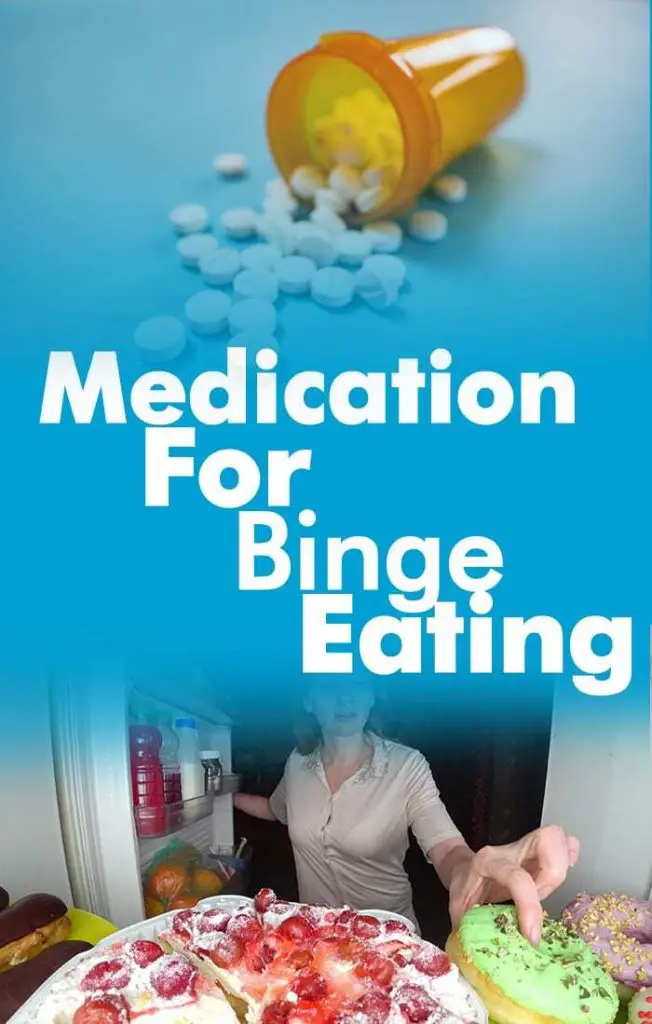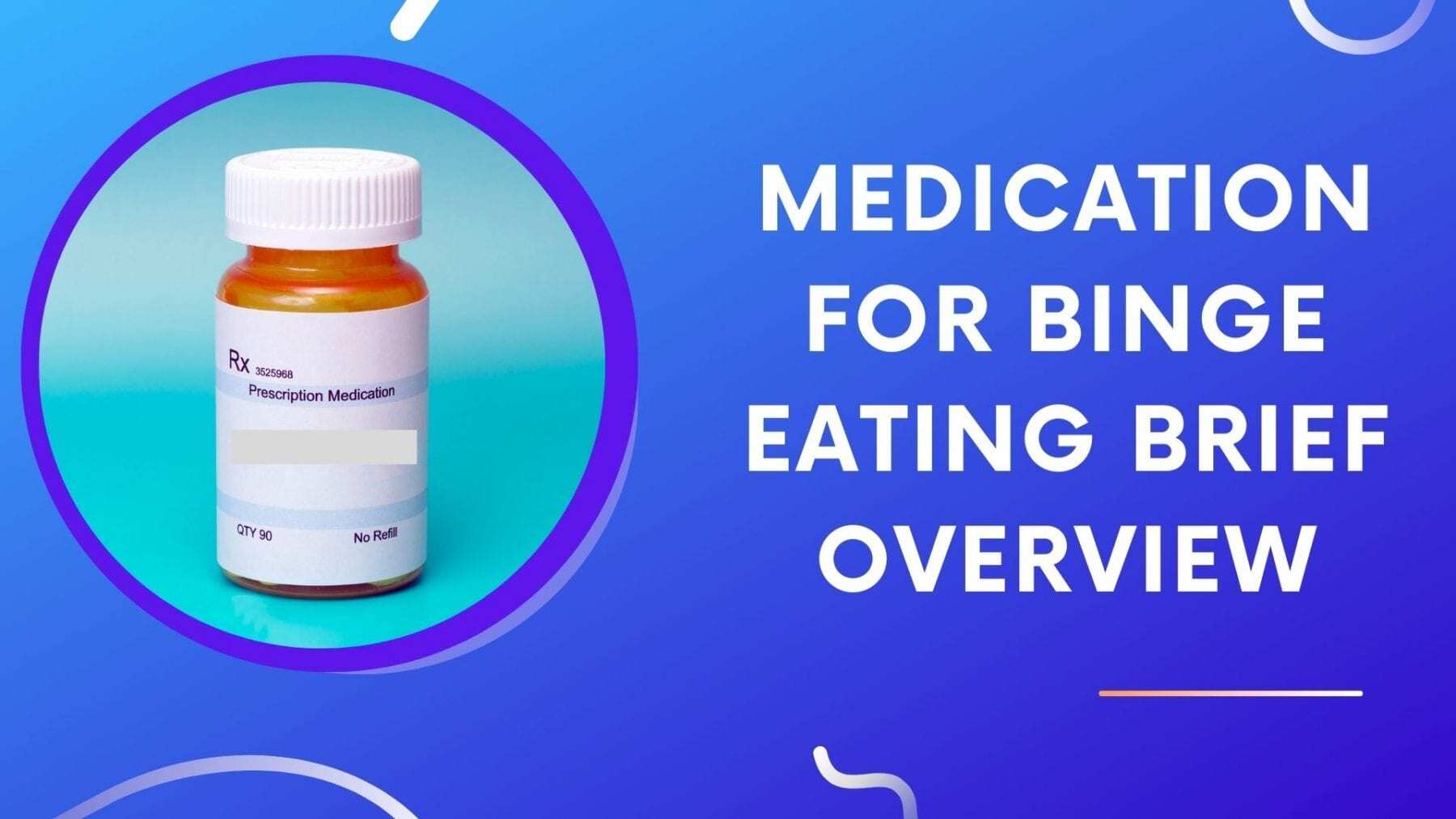I am no doctor, but I did do quite a bit of research about binge eating disorder medication in preparation for this article.
I felt surprise seeing the same medications mentioned at almost every authoritative website.
For example, the Mayo Clinic concludes there are three medications that can help with binge eating disorder and bulimia. Please note that United States Food and Drug Administration (FDA) has only approved two of these three medications:
- Vyvanse – FDA approved
- Topamax
- Fluoxetine – FDA approved only for bulimia
Topamax did not meet the FDA’s criteria, but was still listed on all websites and every other source. Moreover, these sources all agreed that the field of binge eating disorder medication needed much more research.
My conclusion is simple: There are only a few medications for binge eating. There is still much more research we need!
But before I talk more about these three specific medications, it’ll be useful to back up. I first will talk more generally about types of medications used – ADHD, Antidepressants, and Antidepressant medications. That way you’ll have a bit more context for where Vyvanse, Topamax, and Fluoxetine fit in the scheme of things.
Please remember: I am not a doctor. These are simply my opinions. Be sure to consult with your doctor for advice, diagnosis or treatment. In general I do not recommend medications for binge eating, but I do realize that they can sometimes be very helpful in these situations.
Three Types Of Medication Overview
It was just back in 2015 that the FDA first approved medication to help with binge eating. Unfortunately only three recommended types of medications are for binge eating disorder, at least in the United States.
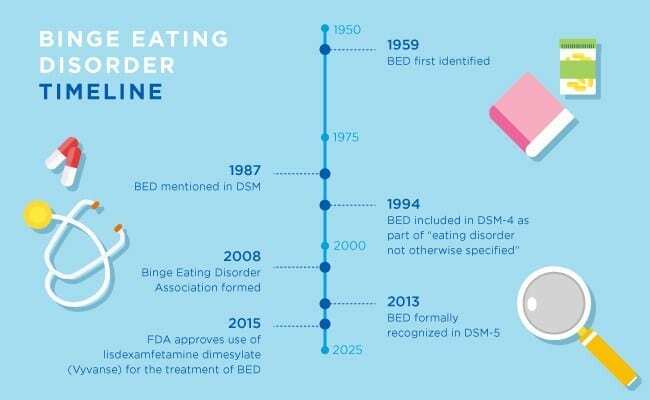
However, each type of medication interacts with your brain differently. Differences between these medications explored below:
ADHD
Attention Deficit Hyperactivity Disorder (ADHD) medications are to treat impulsive behaviors.
Episodes of binge eating, or even simply eating very large amounts of food, are thought of as impulsive eating behaviors.
The basic idea is simple: ADHD meds help you focus. If you can focus better then you can think more rationally about your eating behaviors.
ADHD meds can help you to stay more focused instead of getting distracted and getting pulled into negative thoughts around food and eating.
Furthermore, there can be a sense of having a bit more willpower, so that you can better manage yourself around food and eating, in comparison to the ‘normal’ distracted state.
One study took one placebo group of 259 people. Another 255 people got ADHD meds. Compared with the placebo group which decreased binge eating rates by 21%, the treatment group went down 42% in the binge eating treatment medication group.
ADHD meds, and one drug in particular which I’ll talk more about below, have the best evidence for successful treatment for binge eating disorders.
Antidepressants
Antidepressants are definitely reliable medications for bulimia (and for mental health in general), and they can play a major role in helping other eating disorders such as Anorexia.
But for binge eating disorders in adults, the evidence is more vague.
However, even while the evidence for antidepressants helping to treat binge eating is less significant than for bulimia and other eating disorders, the overall link to eating and positive behaviors is still worthy of consideration.
While scientists don’t know exactly how Antidepressants work upon your mental health to curb binges / purges, they do know that antidepressants can help alleviate depression, which often affects binge eaters as well.
There’s one antidepressant I’ll talk about below.
Antiepileptics
Antiepileptics are also known as anti seizure meds. There’s one medicine I’ll talk about below that fits this category.
However, consider yourself warned – the antiepileptic drug has a lot of side effects. The other two categories listed above (ADHD and Antidepressants) do not seem to have nearly as many side effects like nausea, dizziness, etc.
Three Specific Medications To Treat Binge Eating Disorder
Now that you know these three medication categories, let’s list out by name the three medications generally considered when talking about binge eating disorder treatment.
Vyvanse (ADHD category) – FDA Approved
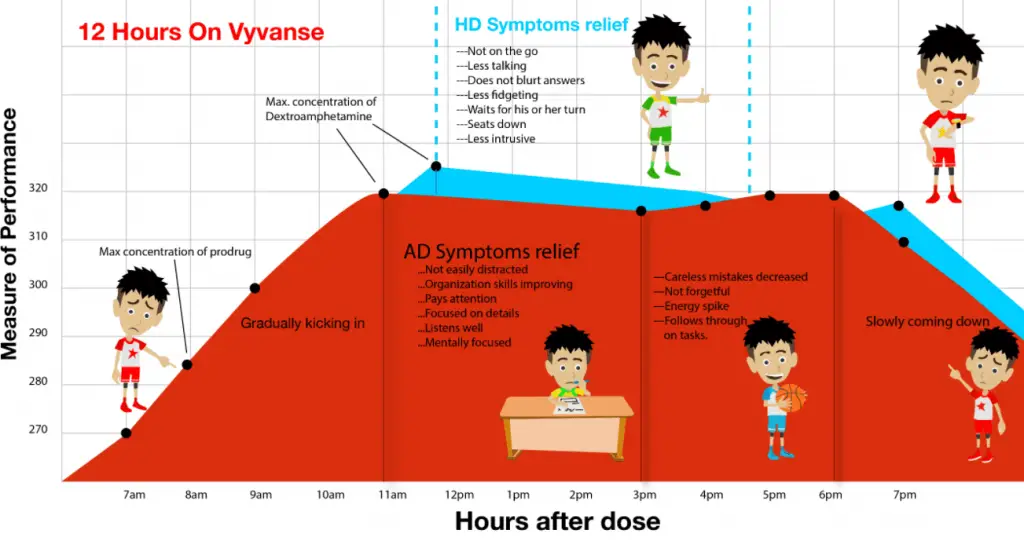
Lisdexamfetamine dimesylate, also known as Vyvanse, back in 2015 became the first FDA drug to help in the treatment of binge eating disorder.
Please note that Vyvanse, just like adderall and other prescription drugs for ADHD, can be abused. The most common side effects are dry mouth and insomnia.
The best scientific description I could find on Vyvanse s that it activates ‘stimulant activity in the Central Nervous System.’
Basically Vyvanse can help your brain from shutting down. A common side effect of binge eating disorder is getting tunnel vision.
This is where your brain is shutting down, and there’s some research that Vyvanse can help with this. But again, I do not recommend medications in general, so be sure to talk with a doctor.
It’s also my opinion that medications alone are not sufficient to treat binge eating disorder. If they get used at all, they are also best used in conjunction with therapy.
Topamax (Antiepilepsy Category)
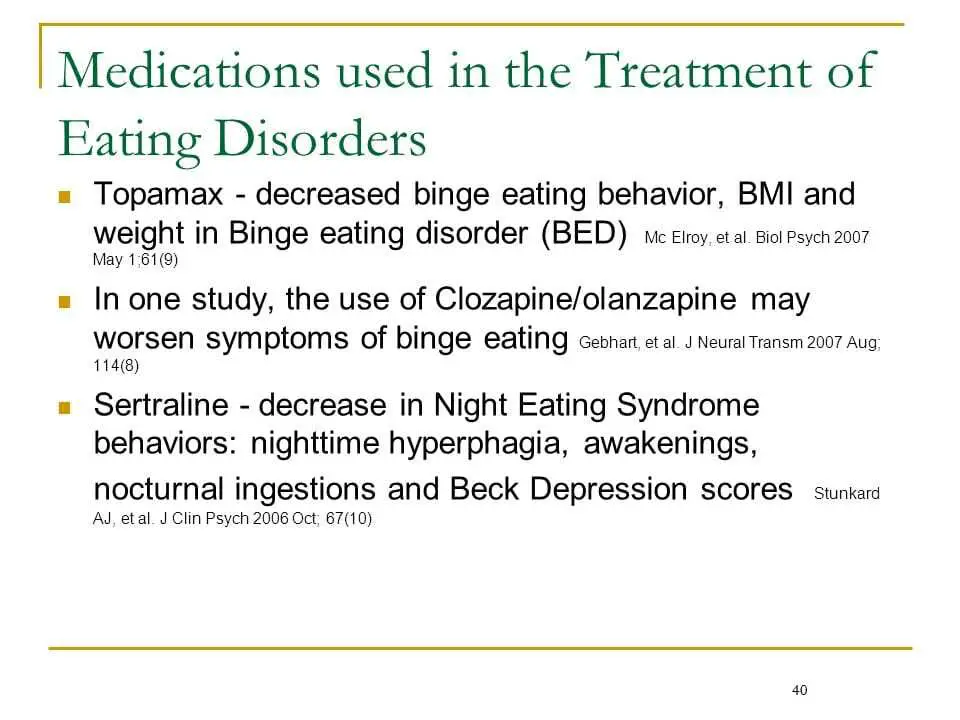
Topamax is not an FDA-approved drug. However, Topamax still gets frequently mentioned as having a valid place in treatment.
Professor McElroy, from Lindner Center of HOPE, says that topiramate is the most well-studied antiepileptic drug. She also mentions that Topamax may show greater weight loss results than other medications. (Please note that topiramate and Topamax are different names of the exact same medication.)
Although to be honest, because weight loss and binge eating disorder unfortunately but understandably become negatively intertwined, I don’t think it’s necessary to even talk about weight loss in context of what it takes to treat binge eating.
There seem to be a few benefits to Topamax (aka, Topiramate) in comparison with placebos, such as showing greater reductions in binges..
Dr. McElroy notes that Topamax may be another option for patients for whom other medications have been unsuccessful (and who currently take other medications at the same time).
Please note that one side effect of Topamax is memory loss.
Fluoxetine (Antidepressant Category) – FDA- approved
Currently, fluoxetine is the only FDA drug with approval for bulimia.
These drugs work to help with moods. The thinking is that if you’re not depressed then you won’t binge. Sounds good to me!
There are a variety of other antidepressants that can coincide with treatment for binge eating disorder.
Here are a few antidepressants that may go alongside binge eating disorder treatment:
- Selective serotonin reuptake inhibitors (SSRIs)
- Tricyclic antidepressants such Bupropion (but watch out because the science is more sketchy here)
Do Wellbutrin or Bupropion Help With Overeating and Weight Loss?
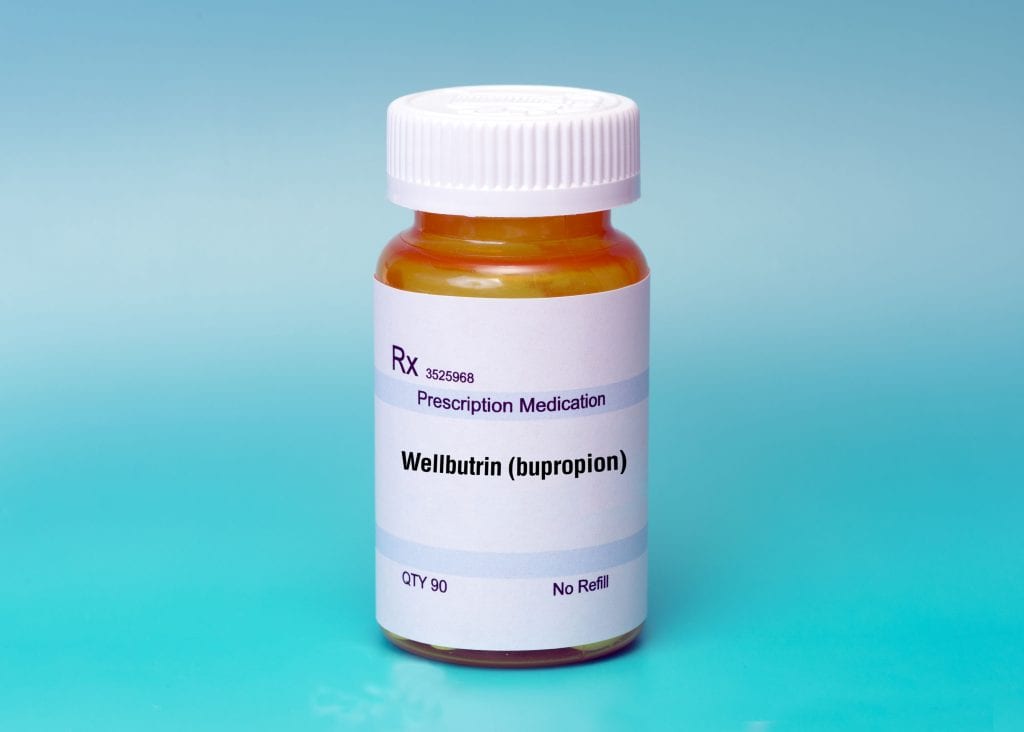
Wellbutrin and Bupropion get mentioned together along with binge eating.
For the reasons explained below, though, it’s my advice to stick with the three medications listed above – Vyvanse, Topamax, and Fluoxetine. And in reality, my first recommendation is to seek Cognitive Behavioral Therapy and only then resort to medication.
With respect to Bupropion, the strongest direct piece of scientific literature I found that discussed Bupropion, did not support using Bupropion for binge eating.
Some sources including WebMD and Mayo Clinic do write about Bupropion, but, importantly, not as a recommended medication.
Wellbutrin is also a potential treatment medication. However, Wellbutrin is never one of the main treatment options for binge eating disorder listed.
Wellbutrin may help with binge eating disorder, although it may not.
Bupropion does not seem to help. Try to go with a more proven antidepressant like Fluoxetine, if you must resort to medication at all.
Conclusion
In conclusion, it’s ok if you do need medication to help with food relationships. As I mentioned earlier, medications can be great, so no stigma here.
But I’d like to again state that I am not a doctor and I am not giving you medical advice.
However, I do specialize in treating eating disorders using Cognitive Behavioral Therapy (CBT) and Intuitive Eating techniques that do not rely on medications.
CBT is still considered to be the most effective treatment for overeating. If you’re at all interested in CBT, I’d encourage you to download the free resources on my website to get started.
